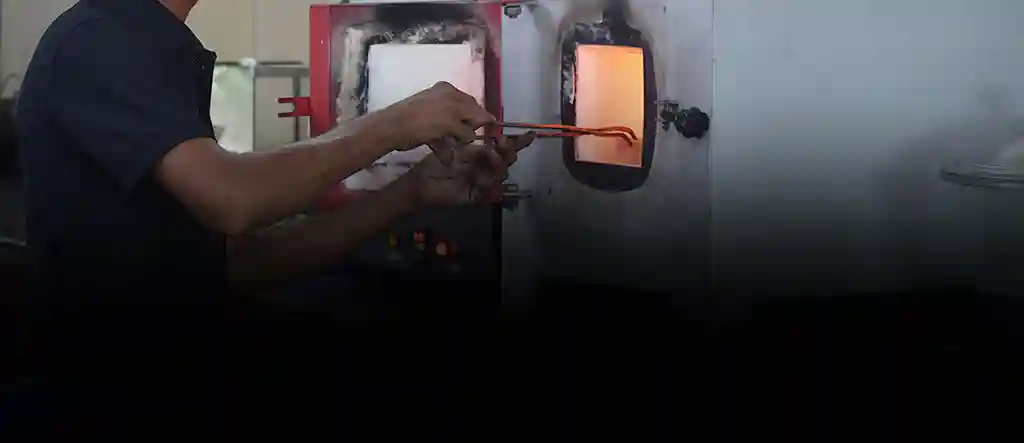



Case Study l CHEMICAL
A Chemical Manufacturer’s Circular Economy Success
Client
Manufacturer of rCB
Need
To validate and quantify the company’s sustainability performance
Industry
Chemical
Goal
Bevolve was brought in to assess and express sustainability efforts in quantifiable and engaging format
What we did?
A Product Life Cycle Assessment (PLCA) of recovered Carbon Black (rCB) manufactured by the company
Case Study
What if your company’s waste could fuel a global movement toward sustainability?
This was the untapped potential of a forward-thinking chemical manufacturer that had recently gone public. Already exporting its innovative products internationally, the company was turning end-of-life (EoL) tires into recovered Carbon Black (rCB)—a critical raw material for industries like tire manufacturing and black toners.
While the company was undeniably doing good, it faced a critical challenge: how to quantify its environmental impact and communicate its efforts in a credible, compelling way. That’s when they turned to Bevolve. With the help of its sustainability platform, the team brought clarity, guidance, and a transformative approach by embedding the Circular Economy into the company’s sustainability story.
The Challenge: Quantify and Communicate the good work
The company had long invested in innovative sustainability practices, effectively diverting EoL tires from environmentally harmful fates such as burning or unmanaged pyrolysis. On its premises, these tires were pyrolyzed and repurposed as rCB, minimizing waste and supporting global industries.
The management team faced the challenge of conveying all the good work that the company was doing in terms that were quantifiable and easily understandable to investors, stakeholders, and regulators. As a newly IPO’d organization eager to strengthen its international reputation, they needed a robust, data-backed narrative to demonstrate the value of their business model.
Approach: Framing Sustainability in the Circular Economy
After understanding the company’s goals, Bevolve proposed a Product Life Cycle Assessment (PLCA) to evaluate the environmental impacts of producing rCB.
The PLCA analysis aimed to answer a critical question:
“What would the environmental damage be if this company didn’t exist to give new life to tires?”
To answer this, our team conducted an on-site assessment of the facility, then meticulously collected data on emissions, resource use, and operational practices, ensuring the management team understood how and why each metric was significant. The Bevolve platform was used to assess the data to come up with critical insights; the main insight being that this company’s business model was a brilliant example of the Circular Economy in action.
A circular model of business looks something like this:

And it emphasizes the following, which stood true with this organization too:
- Designing out waste and pollution by rethinking production systems. The client was doing this onsite, by capturing heat from waste gases and turning gases to fertilisers.
- Keeping materials and products in use through reuse, repair, and recycling. By giving a new lease of life to EoL tyres, the client was doing this as well.
- Regenerating natural systems by reducing dependency on finite resources. By utilising pyrolysis gas as fuel for the manufacturing process, the client was helping conserve Diesel Oil, a non-renewable resource.
By framing the company’s business model within the Circular Economy, the analysis highlighted how its operations reduced environmental harm compared to conventional methods like incineration or unmanaged pyrolysis. The narrative not only quantified the company’s impact but also aligned it with global sustainability goals.
Finally, we concluded the project by creating their first ever PLCA report with the ISO 14040/44 alignment. Following that, the management were guided through the findings step by step, ensuring they understood how to leverage the insights for investor presentations, stakeholder communication, and strategic planning.
The Outcomes: Quantified Impact, Clear Strategy
The results were eye-opening and empowering:
- The company was saving hundreds of tonnes of carbon emissions daily, compared to conventional tire disposal methods like burning or unmanaged pyrolysis.
- The detailed analysis highlighted environmental weak spots, enabling the company to refine its sustainability strategy.
- The company received a report backed by credible data to support its green claims, building trust with stakeholders and investors.
- Armed with the report, the company was now in a strong position to pursue Environmental Product Declarations (EPDs) and Carbon Credits, further monetizing its green efforts.
Perhaps most importantly, this project helped the management see their business not just as a process, but as a movement—a driver of the Circular Economy.
Imagine the Possibilities
Whether it’s quantifying your impact, refining your sustainability strategy, or amplifying your story, Bevolve ensures your efforts resonate with stakeholders.
Let’s create your success story.
Contact us: catalyst@bevolve.ai



